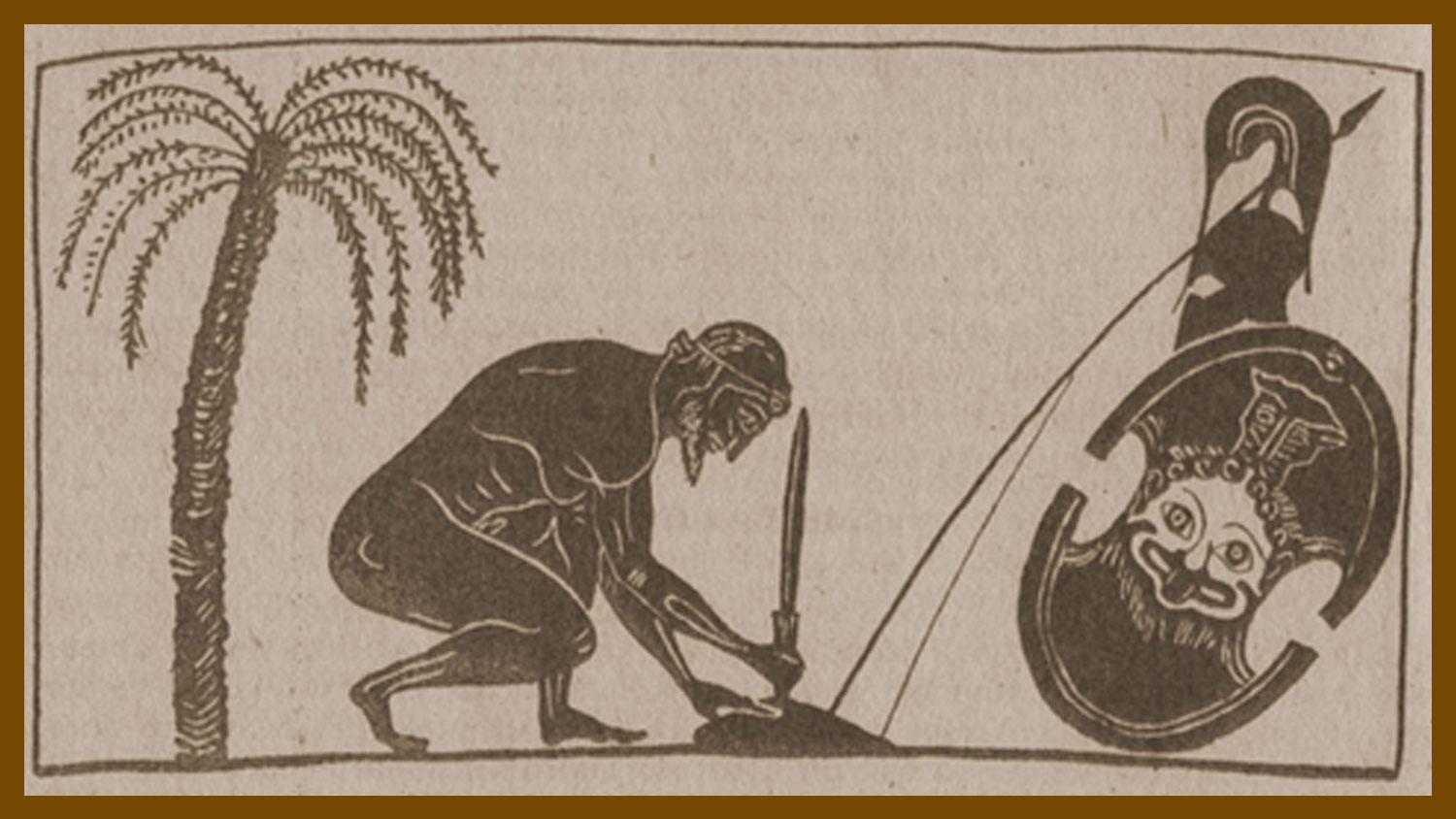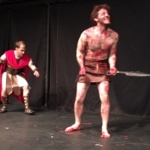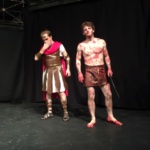
- This event has passed.
Ajax
May 25, 2016 - May 29, 2016

AJAX by Sophocles
translated by Ian Johnston
Director: Dr. Jeff S. Dailey
With:
Juan Sebastian Angarita, Harrison Benjamin, Eli Cox, Denny Desmarais. Hector Diaz, Tyler Downey, John Druzba, Ian Geary, Matthew Hansen, Stephanie Chloe Hepner, Andrew Gerard Matthews, Alex Pennecke, Daniel Valdes, and Madeline Weber.
Light Designer: Terry Prideaux
Light/Sound Technician: Michael Banks
Sophocles’ Ajax is a harrowing play which depicts the effect of extended war on its participants. After the death of Achilles, the greatest of the Greek warriors, Agamemnon announces that Achilles’ armor will be given to the bravest surviving soldier—and there are two candidates, Odysseus and Ajax. A panel of judges is appointed and they award the armor to Odysseus. Ajax believes the judges were bribed, and, in his furious anger, sets out to murder Odysseus, Agamemnon, and Menelaus (Agamemnon’s brother and the husband of Helen, whose infidelity caused the Trojan War). However, the goddess Athena intervenes, and causes Ajax to lose his sanity, so that he believes the cattle he attacks are actually the people he intended to kill. Once he realizes what he did, he sets out to kill himself. Dissuaded by his war-wife, Tecmessa, and his comrades, he leaves telling them he will bury his sword by the seashore. He does so, but leaves the blade sticking up and impales himself on it. His half-brother, Teucer, arrives too late to stop Ajax’ death, and undertakes to bury him. The Greeks believed that, left unburied, the spirit of the dead would return to haunt his relatives. Sophocles wrote another play, Antigone, on the same subject. Menelaus and Agamemnon, angered over Ajax’ attempt at their murder, attempt to prevent his burial. The rite is finally carried out after an unusual intervention.
This play breaks many of the rules usually applied to Greek tragedy. The hero’s death occurs onstage. The scene changes from the Greek camp to the seashore. A goddess appears onstage. These were not usual occurrences in the ancient theatre.
Most poignant is Sophocles’ depiction of Ajax’ mental anguish. When the judges do not award him Achilles’ armor, he snaps—it is the trigger that causes his breakdown after ten years of war. What is now called post-traumatic stress disorder has previously been known as “nostalgia,” “battle fatigue,” and “shell-shock,” among other names, but the effects of war on its participants are as ancient as war itself. The Greek historian Herodotus describes symptoms of depression, anguish, and irrational behavior during the Battle of Marathon in 490 BC, and it has been noticed in every war since then. Sophocles’ depiction of it may have been intended to ease its effects. According to the theory proposed by Aristotle in his Poetics, by watching a tragedy, the audience could avoid having to suffer the same fate as the tragic hero onstage.
The other characters in Ajax do not fare well after the play. Menelaus’ fleet is blown off-course on its journey home, and he returns to a strained marriage that would not produce a male heir. Agamemnon is murdered either by wife or her lover, depending on the source. It took Odysseus ten years to return home, and that journey was marred by encounters with monsters and sorcery. Teucer is denied the right to return home by his father, because he did not prevent Ajax’ death. The Trojan War, undertaken to revenge a slight to Menelaus’ honor, not only affected the Trojans, but also had a negative effect on the victorious Greeks.
May 2016
Details
- Start:
- May 25, 2016
- End:
- May 29, 2016
- Event Category:
- Shows










